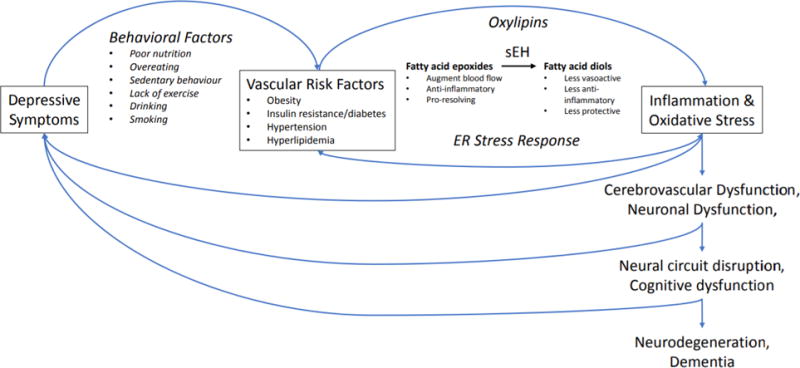Figure 1. Hypothetical relationships between depressive disorders, vascular risk factors and cognitive vulnerability mediated by inflammatory activity and oxidative stress.

Anti-inflammatory lipid mediators (e.g. fatty acid epoxides) are metabolized by soluble epoxide hydrolase (sEH) into less beneficial (less bioactive) and sometimes even pro-inflammatory or cytotoxic oxylipin diol species. Increased sEH activity in the brain and vasculature in depressive disorders may confer vulnerability to vascular risk factors that affect neurovascular coupling/cerebral blood flow/brain metabolism and contribute to cognitive and mood symptoms, and predispose cerebrovascular disease that contribute to neuroprogression and cognitive decline.
